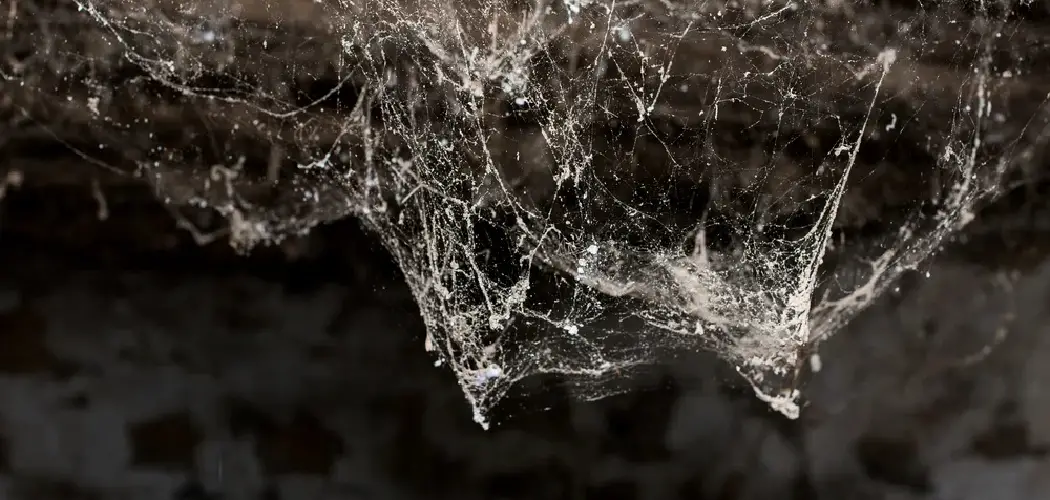Cobwebs can be unsightly in your basement and pose a health risk! Dust mites and other allergens can lurk in the cobwebs, leading to respiratory problems and skin irritations. Furthermore, cobwebs are known to attract pests such as spiders and cockroaches.
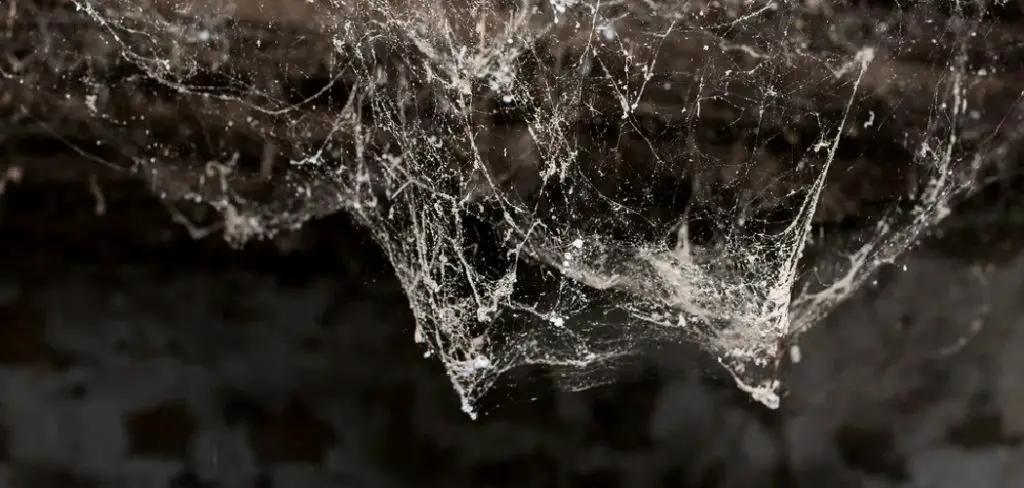
You know it’s summer when the cobwebs appear in your basement. The pesky webs are often the result of spiders who weave intricate webs to capture insects, but they can be a nuisance and an eyesore. Fortunately, you can use a few techniques to prevent cobwebs from taking over your basement. You can find step-by-step instructions on keeping cobwebs out of the basement in this blog article.
Step by Step Processes for How to Keep Cobwebs Out of Basement
Step 1: Inspect the Area
Start by inspecting the basement for any gaps or cracks where spiders could enter. Seal all these potential entry points with caulk, weatherstripping, and other materials. You can also use mesh screens to cover windows and doors to prevent spiders from entering through those spaces.
Step 2: Keep it Clean
A clean basement is less likely to attract spiders in the first place. Make sure to vacuum regularly and wipe down all surfaces with a damp cloth. A clean basement will be far less inviting for spiders, who like dark and messy places.
Cluttering up your basement can also provide an attractive environment for spiders, providing more places to hide. Remove any unnecessary items from the basement and ensure everything is neatly organized.
Step 3: Maintain Humidity Levels
Spiders are attracted to humid environments, so keeping the humidity in your basement at a minimum is important. Invest in a dehumidifier or air conditioner if necessary.
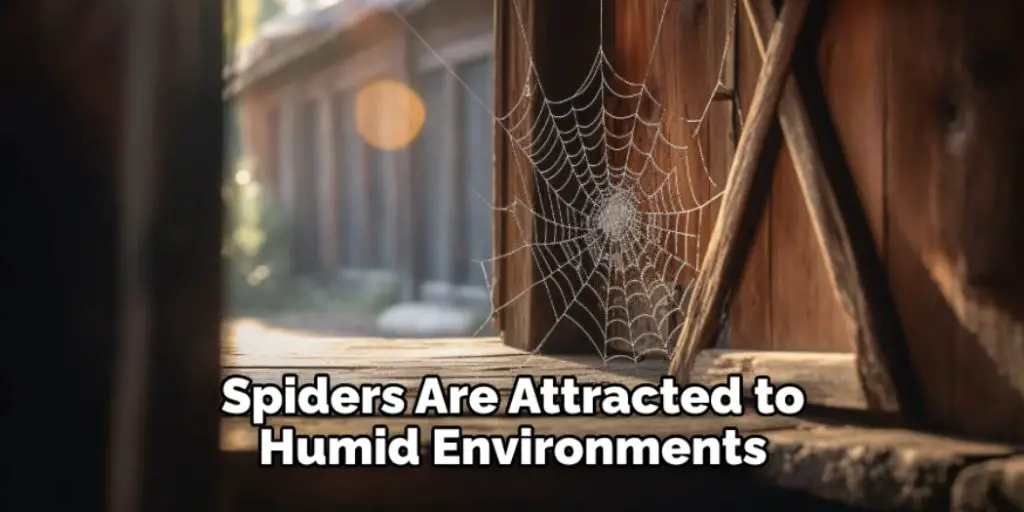
There are a variety of natural spider repellents on the market that can help you keep spiders away from your basement, including essential oils such as citrus, lavender, and eucalyptus. Mix some of these with water in a spray bottle, spritzing around the basement.
Step 4: Install Outdoor Lights
Install outdoor lighting around your property to help reduce the number of spiders and other insects that may be attracted to your home. The lights will act as a deterrent, as many spiders are sensitive to bright light. Traps can help catch any spiders that have already made their way inside your home. Place traps in the dark corners of the basement where spiders are likely to hide.
Step 5: Use Insecticides and Pesticides
Insecticides and pesticides can provide an extra layer of protection against spiders, but they should be used cautiously as they may harm other creatures or be toxic to humans.
Spiders are attracted to food, so it’s important not to leave any food in your basement. Ensure all containers with food or drinks have lids and are kept from possible entry points for spiders.
Step 6: Call an Exterminator
It might be time to call in a professional exterminator if all else fails. They can assess the situation and develop a plan to eliminate any spiders that have taken up residence in your basement.
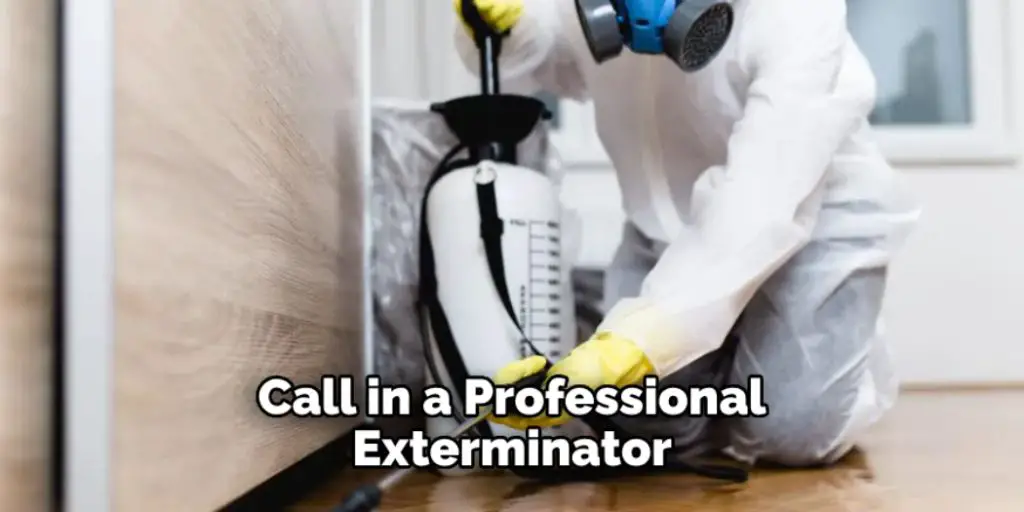
With these steps, you can reduce the number of cobwebs in your basement significantly. By taking preventive measures and proactively keeping your basement clean and organized, you’ll have a much better chance of keeping the spiders out.
Tips for How to Keep Cobwebs Out of Basement
- Check for any cracks or openings in the walls and ceilings, as these can be entry points for spiders and cobwebs.
- Seal all gaps around doors, windows, vents, pipes, wires, and other potential entry points with weatherstripping.
- Ensure window screens are undamaged and fit securely into the frames to keep out insects and spiders.
- Keep your basement, closets, storage areas, and attics clean and clutter-free to discourage spiders from nesting there.
- Damp mop the walls and ceilings with water mixed with detergent or vinegar now and then to remove cobwebs quickly when they do appear – or use a vacuum cleaner with a soft brush attachment.
- Use natural repellents like cloves, eucalyptus, and peppermint oil to deter spiders from entering your home.
- If the cobweb problem persists or becomes severe, consider calling in pest control experts to ascertain the source of the infestation and take measures to prevent it from worsening.
Keep all potential entry points sealed and quickly clean up any cobwebs or spiders you see.
What is the Best Way to Prevent Cobwebs From Forming in a Basement?
Cobweb prevention is a two-fold process: regular maintenance and using natural deterrents. Regularly cleaning the basement, closets, storage areas, and attics can help to keep spiders from nesting there. Additionally, sealing any cracks or openings in walls and ceilings with weatherstripping can prevent them from entering your home.
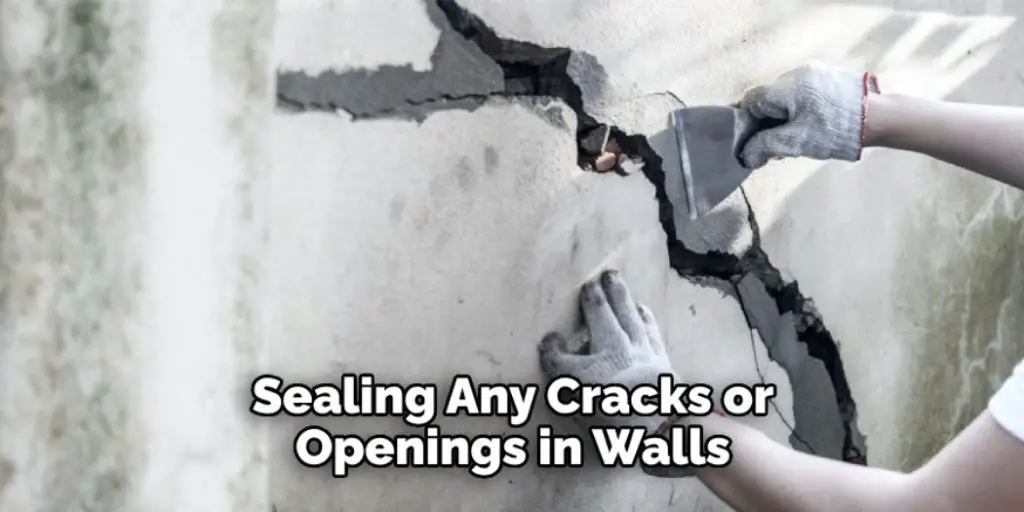
Another key cobweb prevention element is using natural repellents like cloves, eucalyptus, and peppermint oil. These can be placed around windows, doors, and other potential entry points to deter spiders from entering.
Finally, if the problem persists or becomes severe, consider calling in pest control experts to ascertain the infestation’s source and take measures to prevent it from worsening. By following these tips, you can keep your home cobweb free and enjoy a safe and healthy environment for many years.
How Often Should You Clean a Basement to Prevent Cobwebs?
The frequency of your basement cleanings will depend on the amount of dust and dirt that accumulates and how often spiders might enter your home. In general, it is a good idea to vacuum the walls and ceilings once a month and damp mop them with a solution of water mixed with detergent or vinegar now and then to remove cobwebs quickly when they do appear.
If there are cracks or openings in the walls and ceilings, it is important to seal them with weatherstripping every few months, as these can be entry points for spiders and cobwebs.
Additionally, ensure window screens are undamaged and fit securely into the frames to keep out insects and spiders. Finally, don’t forget to use natural repellents like cloves, eucalyptus, and peppermint oil around windows, doors, and other potential entry points. With regular maintenance and the right preventative measures, you should be able to keep cobwebs out of your basement for good.
Is It Possible to Completely Rid Your Basement of Cobwebs?
Yes, getting rid of cobwebs in your basement is possible with a combination of regular maintenance and natural deterrents. First, clean up any visible webs by vacuuming or damp mopping the walls and ceilings and use a vacuum cleaner with a soft brush attachment for tougher spots. Seal all gaps around doors, windows, vents, pipes, wires, and other potential entry points with weatherstripping.
Ensure window screens are undamaged and fit securely into the frames to keep out insects and spiders. Finally, use natural repellents like cloves, eucalyptus, and peppermint oil to deter spiders from entering your home. If the cobweb problem persists or becomes severe, consider calling in pest control experts to ascertain the source of the infestation and take measures to prevent it from worsening.
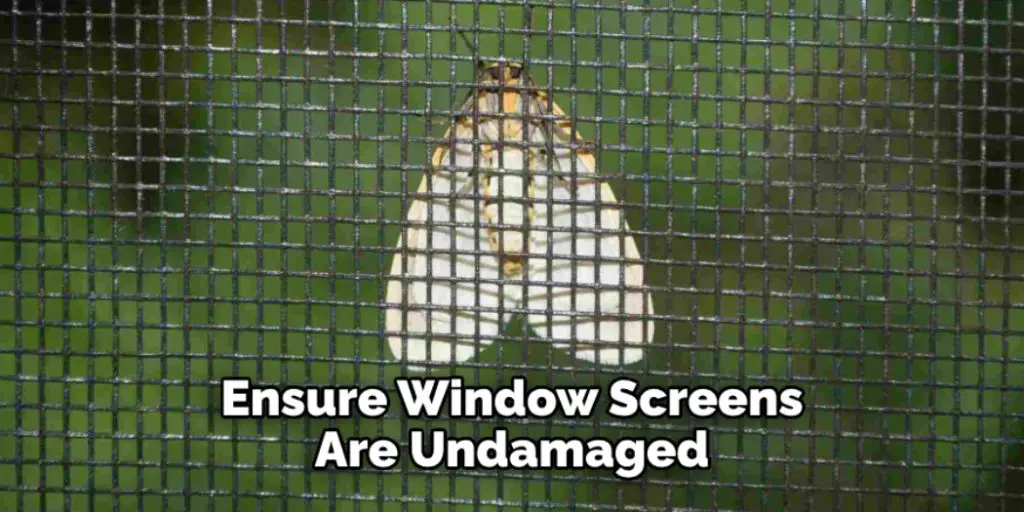
How Often Should You Dust or Vacuum to Help Prevent Cobwebs From Forming in Your Basement?
Regular dusting and vacuuming can help to keep cobwebs from forming in your basement. For best results, vacuum the walls and ceilings once a month and damp mop them with water mixed with detergent or vinegar now and then to remove cobwebs quickly when they do appear. In addition, make sure window screens are undamaged and fit securely into the frames to keep out insects and spiders.
Also, check for any cracks or openings in the walls and ceilings that could be entry points for spiders and cobwebs, then seal them with weatherstripping every few months. Finally, natural repellents like cloves, eucalyptus, and peppermint oil can also help deter spiders from entering your home. With regular maintenance and the right preventative measures, you should be able to keep cobwebs out of your basement for good.
Conclusion
Having cobwebs in your basement can be a nuisance and a source of allergies or other health issues. So it’s important to take steps to reduce cobwebs in your basement. In conclusion, cobwebs in a basement can be effectively prevented by taking some simple measures.
Make sure to keep the area clean and free of dust and dirt, seal all entry points for spiders, inspect the foundation for cracks or holes that need to be filled, install door sweeps if necessary, and use outdoor lighting near windows/doors to deter spiders from entering your home. Reading this post has helped you learn how to keep cobwebs out of basement. Make sure the safety precautions are carried out in the order listed.

